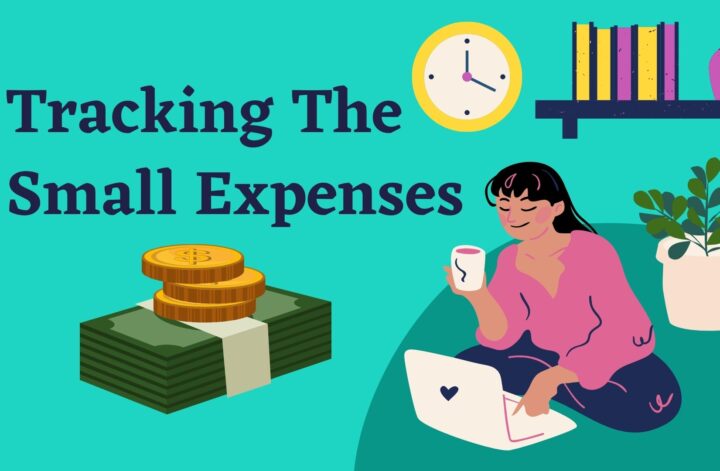If you clicked on this article you most likely have money problems that are coming between you and your spouse. Today I will provide some practical steps to help you stop money fights, get on the same page, gain traction towards financial goals, and be content with where you are at now.
According to market watch the number one predictor that you may end up divorced is if you are having arguments with your partner about money. 48% of couples living together argue about money. Of those who argue about money 41% of Gen-Xers and 29% of Boomers end up divorced over money fights. If I go out on a limb and guess the percentage of couples who are unhappy when they fight about money, I would say it’s 100% of them. If we stop there that is a pretty sad statement that is lacking hope. Is it really possible to stop money fights and unhappiness in a marriage when it comes to finances?
To answer that question let’s go back to the research. Based on the percentage I gave you of couples having money fights that means that 52% of couples living together are not having money fights. Meaning it is possible to stop fighting about money. Now let’s get into some practical tips on how to stop money fights.
A couple of examples of money fights could be, over spending or not being allowed to spend enough. When your partner goes out and buys something unnecessary that you can’t afford, it can be frustrating. Likewise if your partner is a tightwad and doesn’t let you have any joy in buying something that you want that can be aggravating. How do you overcome these kind of money fights?
You have to sit down with your partner and talk it through. You have to do this when you are both calm, well rested, not hungry, and in a good mood. A lot of people don’t want to bring up tough conversations when they are having a good time. Naturally it is because they don’t want to ruin the mood. However, it is the best time to have the conversation because you can both talk rationally and calmly to each other.
Your ultimate goal is not to have someone win an argument but to find a solution for your future together. This may mean compromise on both sides. If you want it to work you have to be the first one who is willing to compromise. Ask your partner politely if they will come to an agreement with you. If you are a tightwad, this may mean giving a little more fun money to your partner and telling them they can get what they want without judgment from you. If you are spending too much, this may mean controlling your desire to spend for your partners sake. There are plenty of things you can do without spending money that can still give you joy. I recommend google searching ways to have fun for free if you don’t know where to start.
That is the first step in coming to agreement when it comes to any type of money fight. Simply talking to each other and acknowledging each other’s thoughts, opinions, and feelings about money. Do not discount your partners views even if you do not agree with them. Try to walk a mile in their shoes so to speak. They are your partner in life not your enemy, so don’t treat them like you would treat an enemy.
Agreement may look like one partner finally understood where the other person was coming from and agreed to handle money in the same manner. More than likely an agreement will look more like a compromise and an order of priorities to hit goals for both of you. This is not an either/or situation. You need to be aligned with your partner towards the same goals at the same time. That may mean you tackle one person’s goal first then hit the other person’s goal. Take a look at this example list of priorities…
- Pay off credit card
- Pay off student loans
- Save & buy a pickup truck
- Pay extra $1,000 each month on the mortgage until paid off
- Provide $40 every month for eating out
- Only drink coffee at home until debt free
- Provide $80 for salon/spa every 3 months
You may notice that some financial goals are listed based on the order they want it to be done. Where others are going to be done overtime each month or every 3 months to accommodate one of the partners desires. Providing $40 in eating out money is a recurring thing every month no matter what goal they are working towards. Where paying off the student loans must be done after paying off the credit cards.
Having recurring agreements is meant to help ease any pain that may come from tackling the large goals. The agreements are not meant for indulging to the point of sacrificing progress towards the large goals. If you are both on board with the large goals you will be able to weed out the unnecessary pleasures from the necessary things that help you keep your sanity. Determining what you and your partner will sacrifice versus what you need to keep during the process is important.
It may take a few positive conversations before you can come to an agreement. When you are in agreement, write it down and put it somewhere that you can both see it. Coming to an agreement is difficult but sticking to the agreement is almost harder. Sometimes one partner suddenly decides to change their mind about the agreement. Once and a while someone gets confused and forgets the order of priorities that were agreed upon. Both of which can cause frustration and you end up in the same money fights.
Instead when you come to an agreement take a personal oath that if you or your partner start to get upset about finances that you come back to the original paper agreement together. Looking over the agreement again rather than stating your point will help resolve a conflict before it turns into a heated argument. It’s harder to argue with your past self that made the agreement than it is to argue with your partner. This also makes it less likely for you or your partner to simply forget what was agreed upon.
I know you’re thinking that all of this sounds great if you could talk calmly together about your future and finances. It would be awesome to be able to compromise and list out your priorities for a brighter future. Even stopping an argument by coming back to a physical list of your priorities. However, at the moment you’re unhappy and you’re having trouble bringing up money conversations with your spouse.
I hear you! I understand because this was me. As much as I love talking about money, it can become a pain center in a marriage that makes it difficult to even bring it up. However it must be done in order to see traction towards your financial goals and even your #relationshipgoals.
Money effects all areas of your life and when the topic gets suppressed it will come back as a heated argument. It is not something to ignore for that reason. You have to have the tough conversations to live with greater freedom in the future.
In my marriage when I attempted to talk about money, my husband would shut me down by putting up his hand and he would say “I don’t deal with money, you deal with it”. I would beg him to get involved because even though I could pay bills, save money, and budget, he would still spend money without asking me. Which of course resulted in bank accounts being over withdrawn because I was doing my thing and he was doing his own thing.
How it finally changed for us was when we were both having a good time I asked him if he would sit and talk with me. I told him about my feelings in our marriage first without bringing up money. He of course then paid attention to what I was saying. I told him I wanted him involved in our finances so we could build a future together that didn’t result in overdrawn bank accounts. I asked him to watch some videos with me to show his commit to our marriage. These were videos from a third party who was speaking about debt freedom, saving, and investing. He agreed to it not because it was about money but because I expressed my heart in a calm environment and we used a third party to help start the conversations.
When the videos ended we finally were about to talk about money. We started asking each other questions about how we felt and how we wanted to deal with money. We started talking through our goals in life. We started realizing if we worked together we would both get what we wanted. We finally prioritized our financial goals through simply talking with each other and learning together from online videos.
I wish I could say it was perfect from that point on but it hasn’t been. It’s been much better and taking that first step was the best decision we have ever made. However life is full of ups and downs. We have had multiple conversations. Some nice and some not so nice. Some we have been able to redirect from negative to positive conversations. Ultimately we are moving towards the goals we set together and minimizing money fights. It’s a process and it doesn’t happen right away like many of us want. When you go into this do not set expectations for it to turn around in one conversation. Just know that there is hope that you can work towards a brighter future.
The last thing I promised to cover was on how to be content with where you are today. For most people, especially within the USA, their money problems are not as bad as they think. There is always something to be grateful for in life. This may mean being grateful for a paying job, a place to live, food to eat, and your spouse. Being grateful for what you have by looking to a bright future gives you hope and thankfulness for where you are today. Your tomorrow doesn’t have to look like today. Be content where you are today because this is just the beginning of your brighter tomorrow.
If you want to hear more watch this YouTube video:




